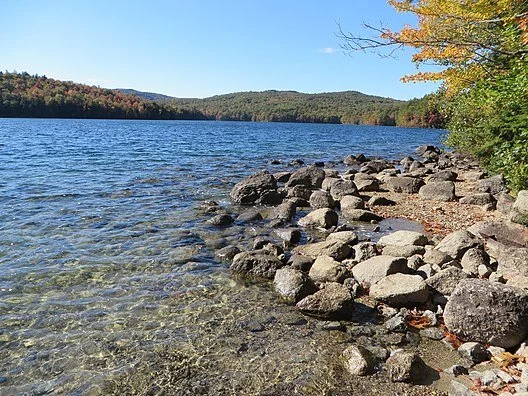Better than manifestos
Nubanusit Lake, in the towns of Hancock and Nelson, N.H.
Hancock, N.H., Man Street in 1907
“If a community has good walking paths through fields and forests, people will use them. The right environment is a far better teacher than a heap of manifestos.’’
— Howard Mansfield (born 1957) in The Same Ax, Twice: Restoration and Renewal in a Throwaway Age. He lives in Hancock, N.H., with his wife, Sy Montgomery, who is well known for writing about animals.
'Silly waste of time'
Skiers practicing the “Christiania turn” (aka stem christie).
“By 1920, we had begun to use skis fairly consistently instead of snowshoes at Tolman Pond {in Nelson, N.H.}. A Norwegian family who visited at the farm introduced us to bindings that stayed put reasonably well, and to ski wax and proper poles, and soon we were exploring the magical mysteries of the Christiania turn…. But it was all strictly for fun and nobody dreamed a business might be made out of it. In fact the older generation did its best to discourage us from such a dangerous and silly waste of time.’’
-- Newton F. Tolman, in North of Monadnock (1957)
The Nelson Community Church, with the town’s famous mailbox shelter in front.
Nelson, founded in 1774, was originally named Packersfield, after a founder, Thomas Packer, the sheriff at Portsmouth. But the name was changed in 1814 to honor Viscount Horatio Nelson, British admiral and naval hero. This may seem strange, especially considering that the War of 12812 was underway. But many New Englanders opposed the war and Southern domination of the U.S. government and would have willingly accept a return to British rule.
Nelson, with four streams to provide power, developed into a prosperous small manufacturing town in the 19th Century, making cotton cloth and wooden chairs. That’s long gone and Nelson for many years has been a summer and weekend place. It has long lured writers, such as poet and memoirist May Sarton, and professional and amateur painters.
Sawmill in Nelson, 1914






